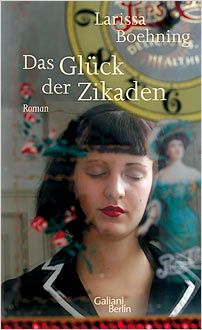review
Belief and betrayal, illusion and disillusion run through the heart of The Song of the Cicadas, as it traces the lives of three generations of women, from 1930s Moscow to a divided Berlin. These personal themes are echoed in the political settings, from communist repression to the emotional cost of comfortable living in a capitalist society.
The three main characters have been silenced by external forces or inner compulsion. Nadja is an actress forced to leave her native Russia because she married a German. Nadja’s daughter must choose between following her true love, the father of her unborn child, to East Germany or settling for a safe existence with a man she does not love. Nadja’s granddaughter suffers from an acute sense of isolation that leaves her prey to the lies of a compulsive gambler. In a twist on the title of the book, however, none of the men is happy either, bound up as they are with women who do not feel free to express themselves.
The narrative perspective of this arresting novel is reminiscent of Fallada’s Alone in Berlin, swinging between different points of view and keeping the main characters at a tantalising distance from the reader.



All recommendations from Autumn 2011